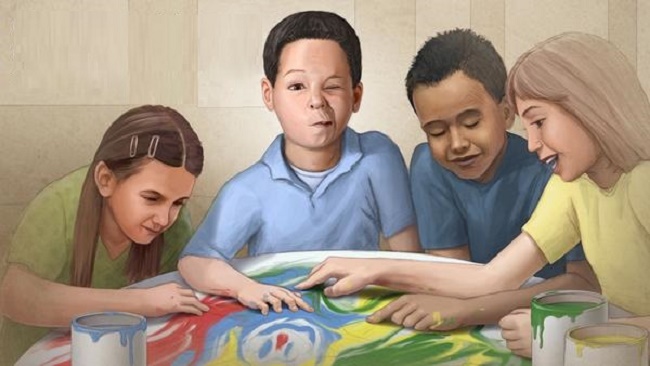Tics are more common disorder than people tend to think. Tics are defined as repeated, sudden, rapid, non-rhythmic muscle movements including sounds or vocalizations. Tourette syndrome is diagnosed when people have had both motor and vocal tics for more than a year.
Tics can be experienced in some of the following ways:
Movement tics:
- Blinking
- Shoulder shagging
Vocal tics:
- Sniffing
- Throat clearing
Tourette Syndrome (TS): Tourette syndrome is a neurological disorder characterized by repetitive, stereotyped, involuntary movements and vocalizations (tics).
Tics vary widely in severity; they occur in about 20% of children, many of whom are not evaluated or diagnosed. Tourette syndrome, the most severe type, occurs in 3 to 8/1000 children. Male to female ratio is 3:1. [SOURCE]
The tics in TS can be be categorized as either simple tics or complex tics. Simple tics include head jerking, facial grimacing and eye blinking. Whereas complex tics include bizarre gait, scratching, kicking, jumping and obscene gestures.
Categorizing tics into four ways…

All of the above conditions improve as children age, and the majority tend to “grow out” of their tics around early adolescence.
How tics are treated…
Tics are harmless and does no injury to the brain. They tend to get away with time. Usually tics are left untreated in child as they will show improvements on his or her own.
Although medications may be beneficial to reduce the frequency and intensity of the tics. Some of the medications include:
- Guanfacine
- Clonidine
- Antipsychotic medications, such as Risperidone
Another treatment option is behavioral therapy. This can help children control the urge to exhibit tics, and may be as effective as using medication.
The therapy of choice for tic disorders is called habit-reversal therapy, or HRT. In HRT, the individual learns to recognize the “trigger” feeling preceding the tic. Once a patient successfully identifies their trigger, they can learn to respond to this feeling by engaging in an alternative behavior.







